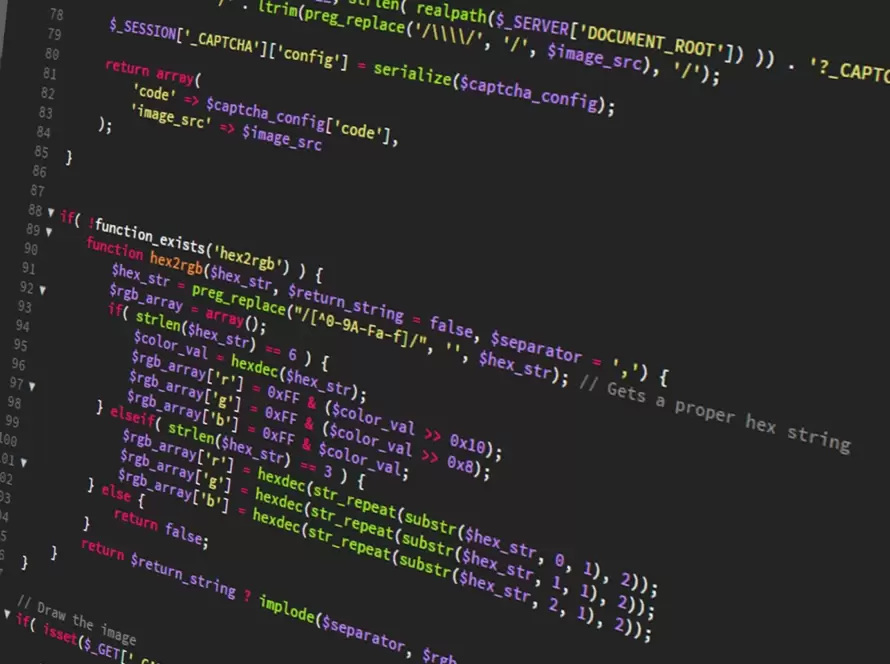Published by Contentify AI
- Benefits of PHP in E-Commerce Development
- Popular PHP Frameworks for E-Commerce
- Best Practices for Using PHP in E-Commerce
- Security Considerations with PHP in E-Commerce Development
Benefits of PHP in E-Commerce Development
PHP, a server-side scripting language, has cemented its position as a cornerstone in the realm of e-commerce development. Its flexibility, speed, and compatibility make it an ideal choice for building dynamic e-commerce websites. One of the key advantages of PHP in e-commerce development is its cost-effectiveness. Being an open-source language, it significantly reduces development costs, making it accessible for businesses of all sizes. Additionally, PHP’s compatibility with various databases, such as MySQL, allows for the easy integration of a wide range of functionalities, essential for e-commerce sites.
Moreover, PHP’s extensive community support ensures that developers have access to a wealth of resources, plugins, and frameworks that streamline the development process. This community-driven support aids in resolving issues swiftly and introduces innovative solutions that enhance e-commerce platforms. The language’s scalability is another vital benefit. As e-commerce stores grow, PHP adapts to increased traffic and data volumes without compromising performance. This scalability ensures that e-commerce sites remain efficient and responsive, contributing to a positive user experience.
PHP also excels in customization capabilities. It allows developers to tailor e-commerce sites according to specific business requirements, offering unique features and functionalities that stand out in the competitive digital marketplace. This level of customization ensures that businesses can adapt to changing market trends and consumer preferences, maintaining relevance and driving sales.
Furthermore, PHP’s speed is a crucial factor in its role in e-commerce development. Quick loading times are imperative for retaining customers and improving search engine rankings. PHP aids in developing lightweight websites that load quickly, reducing bounce rates and enhancing the overall shopping experience.
In summary, the role of PHP in e-commerce development is multifaceted, providing cost-efficiency, scalability, extensive community support, customization capabilities, and speed. These benefits collectively make PHP a preferred choice for developers and businesses aiming to create robust, dynamic, and user-friendly e-commerce platforms.
Popular PHP Frameworks for E-Commerce
PHP serves as the backbone for several frameworks that are specifically designed to streamline and enhance e-commerce development. These frameworks not only leverage PHP’s inherent benefits but also introduce additional features and tools tailored for online commerce solutions.
Laravel, renowned for its elegant syntax and robust features, is a top choice among PHP frameworks for e-commerce projects. Its comprehensive ecosystem, equipped with dedicated packages for handling various e-commerce needs such as payment integration and inventory management, simplifies the development process. Laravel’s scalability and security measures are particularly beneficial for e-commerce platforms expecting high traffic volumes and requiring sensitive data protection.
Another popular framework is Symfony, which offers a modular component system. This allows developers to pick and choose the components necessary for their e-commerce application, promoting a high degree of customization and efficiency. Symfony’s structure is ideal for developers aiming to build complex and feature-rich e-commerce sites.
For those looking for a PHP framework that is specifically designed for e-commerce platforms, Magento stands out. It offers extensive e-commerce functionalities out-of-the-box, including product management, customer insights, and marketing tools. Magento’s scalability supports businesses as they grow, making it a preferred choice for large-scale e-commerce projects.
Zend Framework, though now transitioning into the Laminas Project, has historically been a go-to for enterprise-level e-commerce applications. Its object-oriented nature and component library provide a solid foundation for building scalable and secure online shopping platforms.
Lastly, CodeIgniter, known for its performance and lightweight footprint, is favored for smaller e-commerce sites and startups. Its straightforward installation and minimal configuration requirements make it an ideal choice for businesses looking to quickly launch their e-commerce presence.
Incorporating these frameworks into the development strategy can significantly enhance the role of PHP in e-commerce development, offering developers the tools and capabilities needed to create secure, scalable, and highly customized e-commerce platforms. Each framework brings its unique advantages to the table, allowing developers to choose the best fit based on the specific requirements of their e-commerce project.
Best Practices for Using PHP in E-Commerce
Adhering to best practices when using PHP in e-commerce development not only optimizes the performance and security of your online storefront but also ensures a seamless user experience that can significantly boost conversion rates. One fundamental practice is prioritizing security to safeguard customer data and transactions. Implementing robust encryption methods for data storage and transmission, such as SSL/TLS for secure connections, is non-negotiable. Additionally, regularly updating PHP versions and dependencies can protect against vulnerabilities, as newer versions often include critical security patches.
Efficient database interaction is another cornerstone of leveraging PHP in e-commerce. Utilizing PDO (PHP Data Objects) for database access promotes a secure and consistent way to interact with a database, mitigating risks like SQL injection attacks. Moreover, optimizing queries and regularly indexing databases can drastically improve your site’s response time and overall performance.
Adopting a modular approach to development is also advantageous. Modular coding in PHP allows for easier maintenance, updates, and scalability by encapsulating functionality into interchangeable modules. This approach not only streamlines the development process but also facilitates easier debugging and enhances the ability to introduce new features without disrupting existing functionality.
Caching is a critical strategy in e-commerce platforms to reduce server load and speed up content delivery. Implementing effective PHP caching techniques, such as opcode caching or object caching, can significantly improve your site’s load times, enhancing the user experience and potentially boosting SEO rankings.
Lastly, leveraging an appropriate PHP framework can play a pivotal role in efficient e-commerce development. Frameworks come with built-in features and tools specifically designed to handle common e-commerce functionalities, such as payment processing, inventory management, and user authentication. Choosing a framework that aligns with the project’s scale and complexity can lead to more organized code, better security practices, and reduced development time.
Integrating these best practices into your PHP development process underscores the role of PHP in e-commerce development, ensuring that your e-commerce platform is not only robust and scalable but also secure and user-friendly.
Security Considerations with PHP in E-Commerce Development
In the sphere of e-commerce development, ensuring robust security protocols is paramount, given the handling of sensitive user data and financial transactions. The role of PHP in e-commerce development extends to deploying comprehensive security measures that protect against a myriad of vulnerabilities, including SQL injection, cross-site scripting (XSS), and data breaches. Emphasizing the importance of security within PHP-based e-commerce platforms involves several key strategies.
Firstly, employing up-to-date PHP versions is crucial. Each update often comes with enhanced security features and patches for known vulnerabilities, making regular updates a frontline defense against potential security threats. Additionally, utilizing prepared statements with PDO (PHP Data Objects) for database interactions significantly reduces the risk of SQL injection attacks, a common threat to e-commerce sites.
Moreover, implementing SSL/TLS encryption for all data transmissions ensures that customer data, especially payment information, is encrypted during transit over the internet. This not only safeguards sensitive information but also boosts consumer confidence in the security of the platform.
Setting stringent file permissions on the server hosting the e-commerce platform is another vital security measure. Limiting permissions minimizes the risk of unauthorized access or alterations to the site’s files and data, adding an extra layer of security against attacks.
Furthermore, regularly conducting security audits and vulnerability assessments can identify and rectify potential security flaws before they can be exploited. Incorporating tools like web application firewalls (WAF) and intrusion detection systems (IDS) can also provide real-time monitoring and defense against attacks.
Lastly, educating developers and administrators about the latest security threats and best practices is essential for maintaining a secure e-commerce environment. A well-informed team is better equipped to implement effective security measures and respond swiftly to any security incidents.
Given the role of PHP in e-commerce development, adhering to these security considerations is not just about protecting the platform; it’s about preserving customer trust and ensuring the long-term success of the e-commerce business. By prioritizing security, PHP developers can create robust, secure e-commerce sites that stand up to the evolving landscape of cyber threats.



